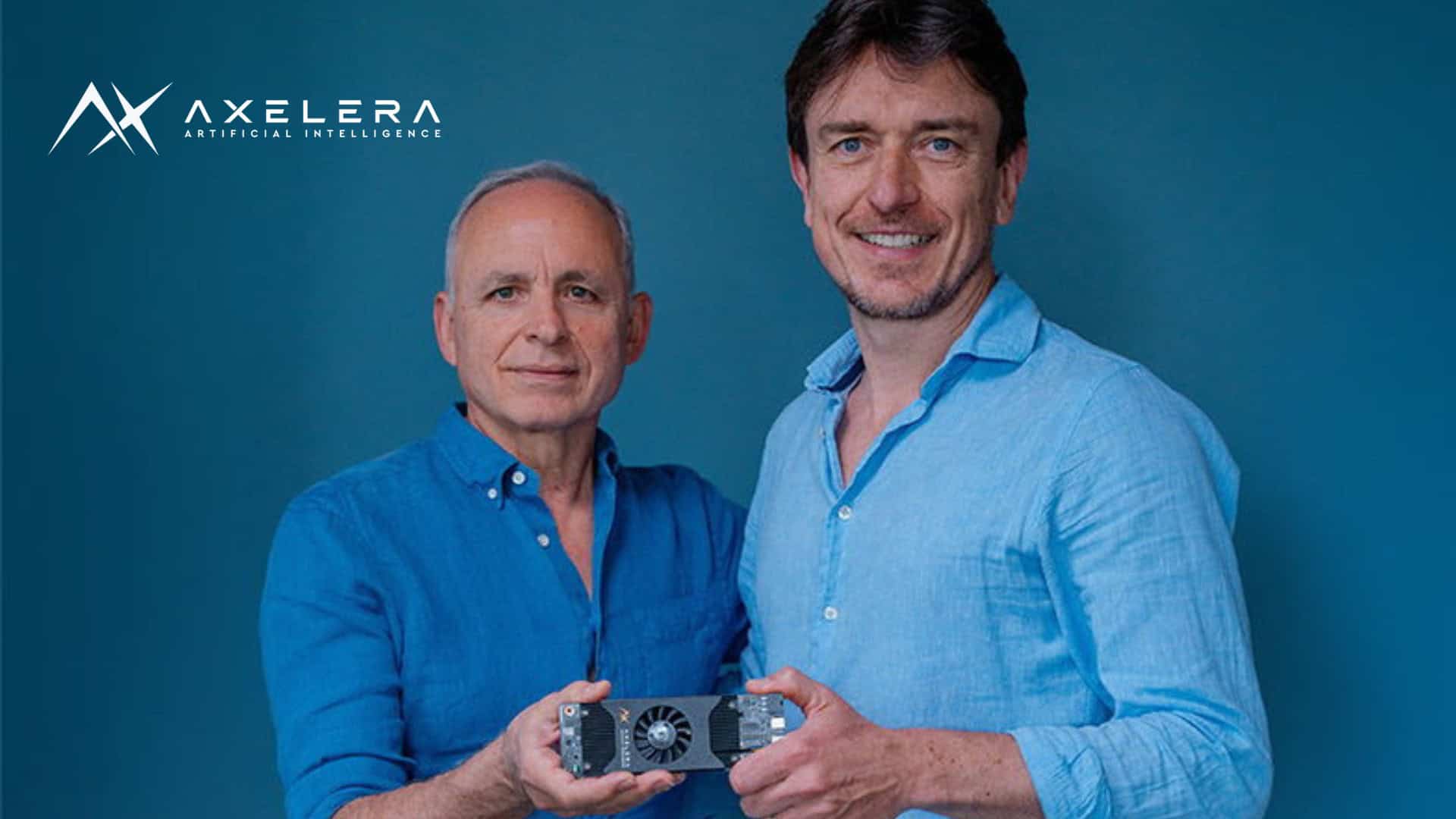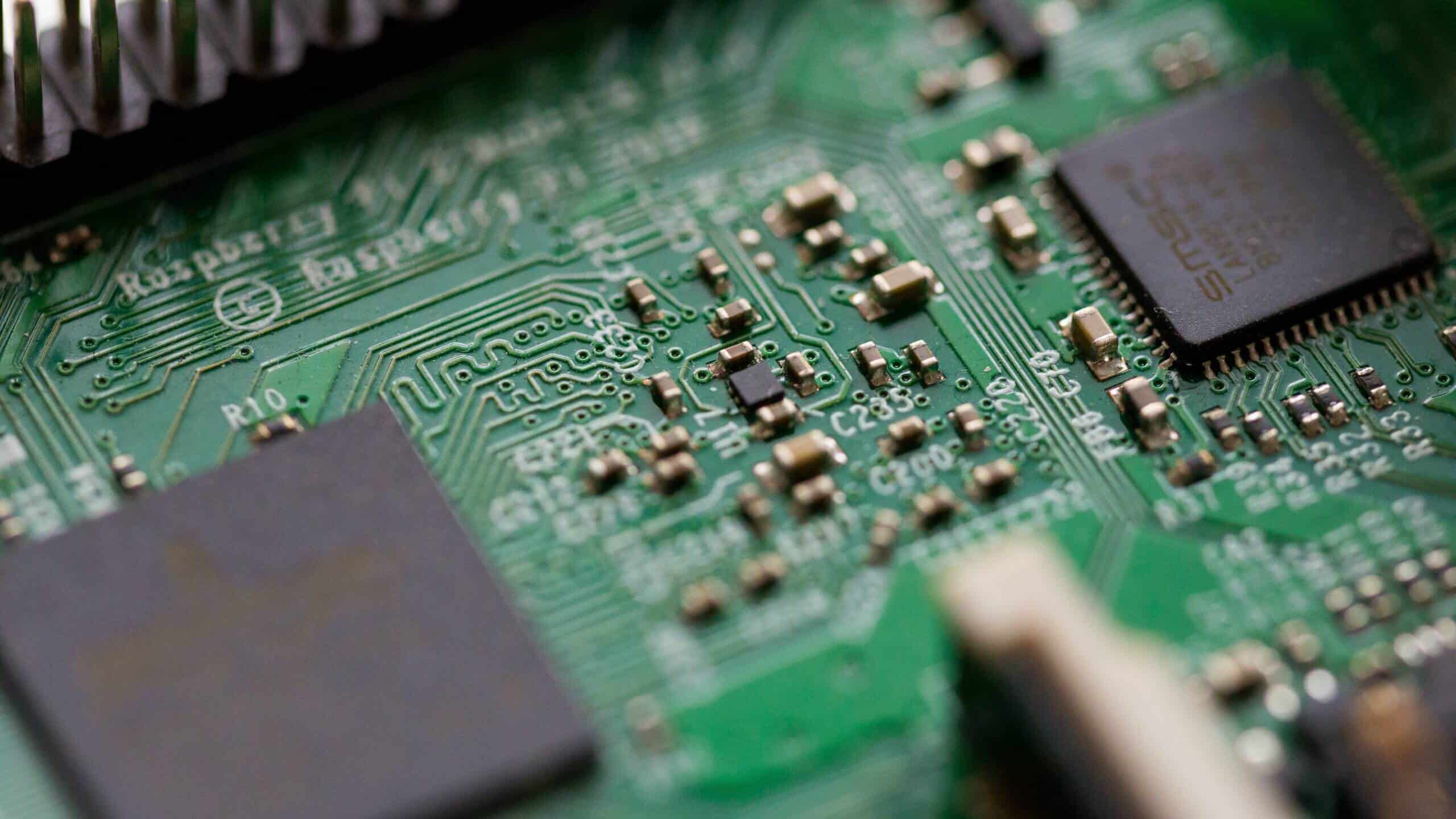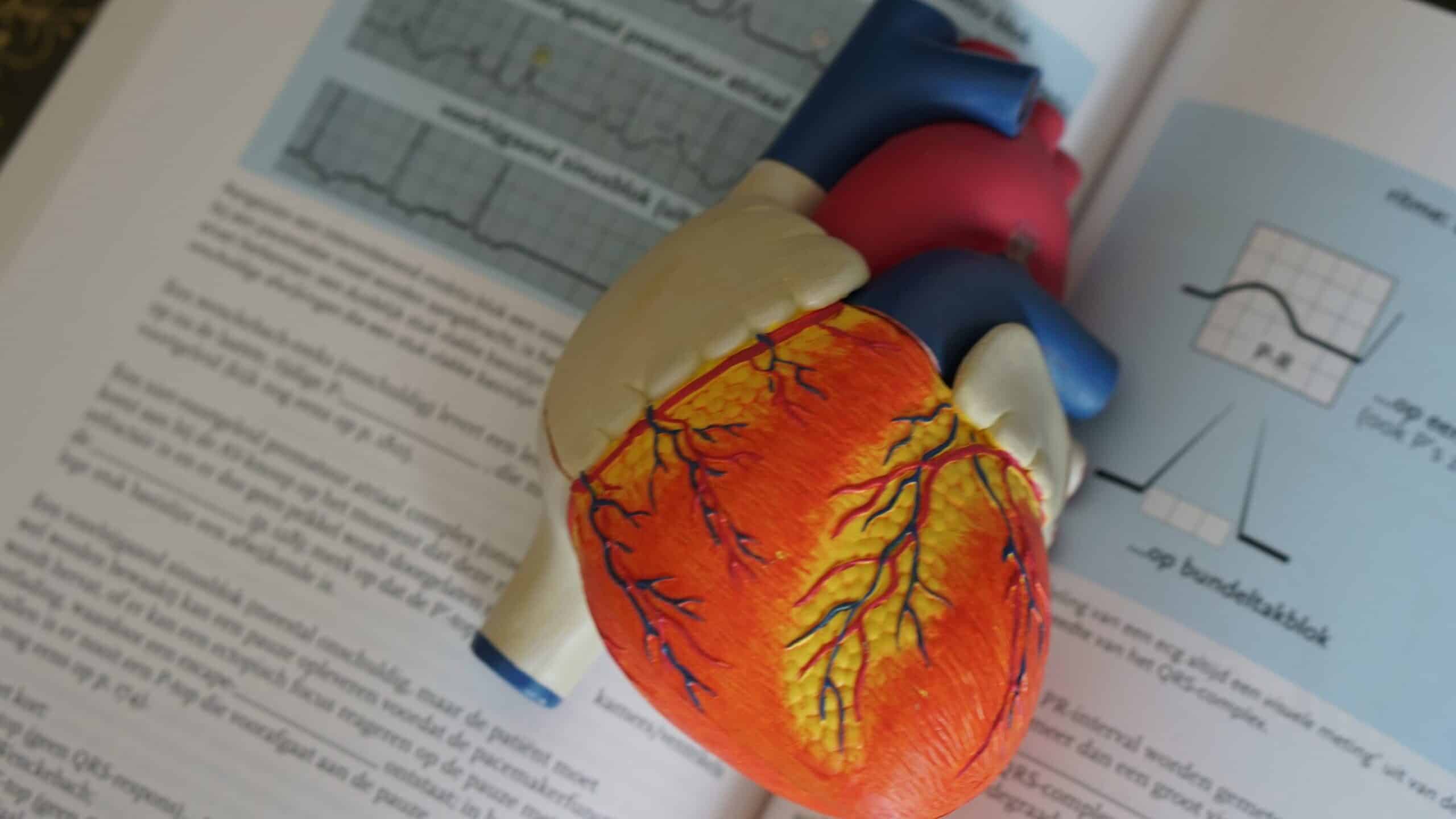Shoplifting is a 100 billion Euro problem. Startup Veesion has developed algorithms that analyze gestures and can catch up to 10 times more thieves than a security guard. In this interview, co-founder Thibault David explains how that works.
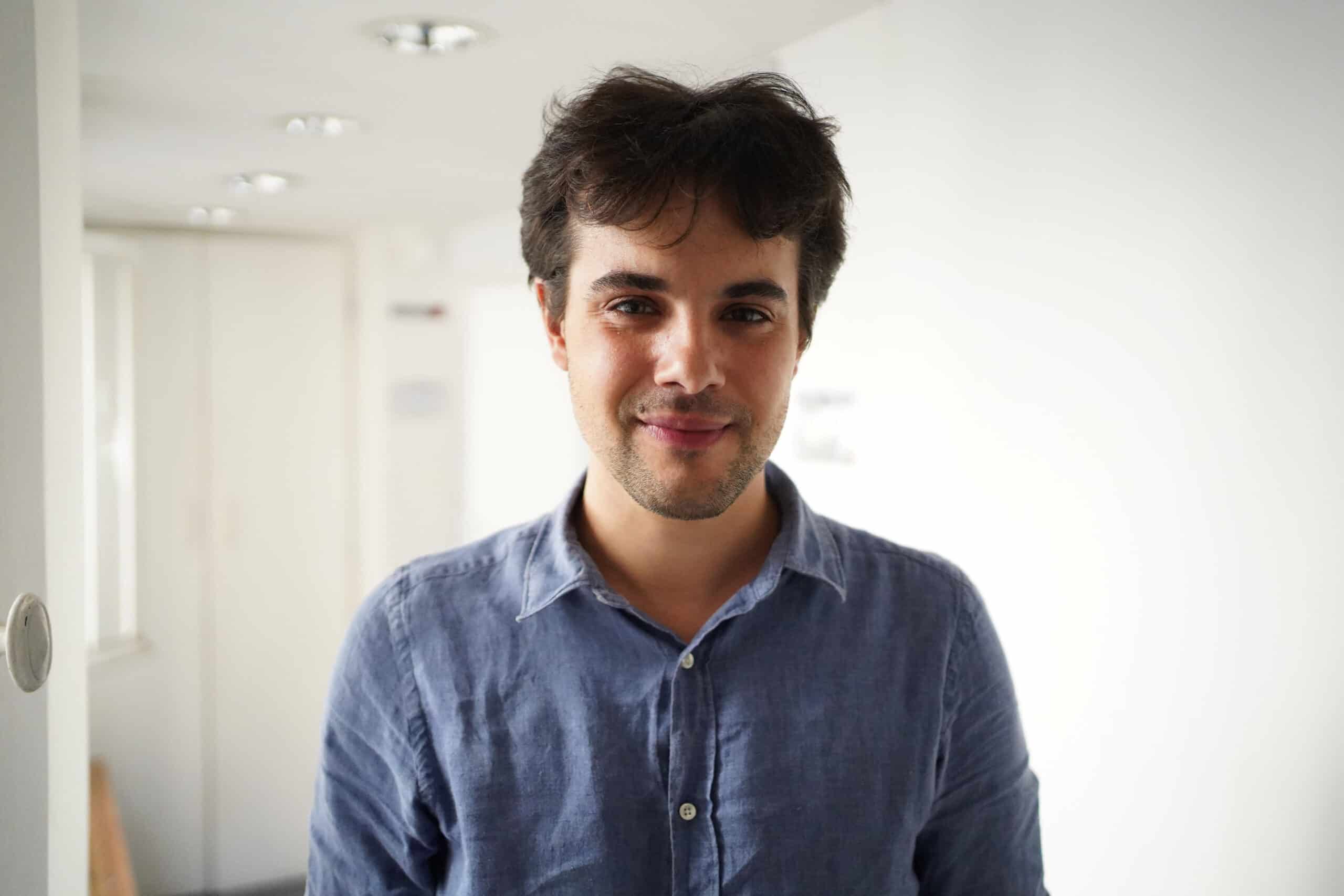
Co-founder and CEO, Veesion
Thibault David co-founded Veesion in 2018 together with Damien Menigaux and Benoît Koenig. Veesion has developed a technology based on convolutional neural networks that performs real-time gesture recognition of video content. Veesion applies the algorithm to security camera content in order to automatically detect shoplifting behavior.
You co-founded Veesion in April 2018. What were you doing before that?
I studied at the HEC business school in France. It was a double degree with the top engineering school in France, the École Polytechnique. I specialised in data science, as I was really interested in this booming sector. At the École Polytechnique, I met Benoît Koenig and Damian Menigaux. We were brought together by a shared ambition to build a company based on data science and AI, where we saw a lot of opportunities. That was the starting point for Veesion.
Why did the three of you decide to found a company that helps detect shoplifting?
We were fascinated by deep learning and how rapidly research in this field was developing. We knew that many companies were already applying deep learning to images, but not yet to video, a much newer field of research. We saw this as a big opportunity, so we started brainstorming which sector we could apply this recent progress in research to. Benoît’s relatives own some shops, so he was well aware of the problems caused by shoplifting. This technical ambition, combined with Benoît’s insight into the problem, provided the basis for our business idea.
“Our product is live and already saving our customers a lot of money.”
What basic problem did you set out to solve with Veesion?
When we founded Veesion, we did some market studies and interviewed many shopowners and security guards. They said that 90-95% of shoplifters go undetected. This is because there are no efficient ways of stopping them – shops have video footage, but nobody is watching it as there is simply too much of it. It is like finding a needle in a haystack. If you spot someone shoplifting in the video footage, it is by pure luck. Veesion’s goal is to detect it automatically.
How much of a problem is shoplifting these days and who is doing it?
Shops lose 1-2% of global turnover due to shoplifting. In France, it amounts to a loss of 5-7 billion euros per year. Globally, this is 100-120 billion euros. Shoplifting follows the 80:20 rule: 20% of cases account for 80% of the value. This is done by professional shoplifters, who know how to steal a large number of products very quickly and later resell them on the unofficial market.
What kind of shops can your software be used in?
Shoplifting is present at any kind of physical shop. The shoplifters look for small, easy-to-hide products with a high value, such as alcohol, coffee, chocolate and cosmetics. The price of a single coffee capsule might be negligible, but when dozens of boxes are being stolen so that they can be resold later, it is a significant loss for the shop’s owner – especially when it happens every two days. Our software is currently being used in more than 700 shops, including supermarkets, pharmacies, drugstores, clothes shops and even warehouses.
What sets you apart from your competitors?
Firstly, our software is currently being used in over 700 shops, so our AI is fueled by a significant amount of data. This makes our product more robust than one based on data from five shops. Secondly, we have focused on one strategy: to optimise our computational resources. We were able to launch our product in shops with almost no costs – Veesion does not charge customers a setup fee. Moreover, the product can be installed in shops the day after the contract is signed. This is what our partners like in us, compared to other companies in the ecosystem.
How is the software able to tell which gestures are suspicious?
Our software has been trained in gesture recognition. It can distinguish between normal shopping behaviour – such as picking up products from the shelves to compare prices – and suspicious behaviour – such as picking up a product and hiding it in a rucksack or coat. “Suspicious behaviour” does not necessarily mean theft; it only means that the sequence of gestures might be of interest to the shop owner.
How does this compare to hiring a security guard?
We do not compete directly with security guards, as we are not here to replace them. We are here to make them more efficient and to help them with their difficult work. In terms of costs, our product is 20 times less expensive than employing a security guard. We tell potential customers without security guards: “If you don’t have a security guard, you have no way to fight shoplifting. Wouldn’t you be interested in a solution that is 20 times less expensive than a security guard that would help you detect shoplifters?” If the shop already has a security guard, we say: “You spend a lot on security, with very poor results, because your guard cannot keep an eye on everything. Wouldn’t you like to invest just a bit more to incorporate Veesion into your current setup, so that your guard can catch 5-10 times more shoplifters than he does now?”
Does the software make the assessment more objective, meaning that there is less scope for discrimination?
Exactly – our algorithm only looks at gestures, rather than a person’s appearance, so it lacks the bias that humans can have when on the lookout for shoplifters. The assessment is purely objective and much more efficient, because you cannot tell in advance who is going to steal items from your shop.
“Our algorithm only looks at gestures, rather than a person’s appearance, so it lacks the bias that humans can have when on the lookout for shoplifters.”
How does Veesion’s product respect shoppers’ privacy while helping detect shoplifters?
We are not here to identify people; we are here to analyse gestures. Our system is a no-memory gesture detection system. If a person makes three different shoplifting gestures in front of three different cameras, our system will not notice that it is the same person in the video. The system sends alerts to the people whose job was already to monitor video footage to detect shoplifting. We fully comply with EU legislation. We do not keep the video data or use it for anything other than its original purpose; that is, to ensure the safety of the people and goods in the shop.
More of us are shopping online, especially since the start of the pandemic. Is there still a need for surveillance in shops if people are just ordering on Amazon?
People have long been saying that physical retail is dying. In reality, it is changing, with the decline of hypermarkets in the suburbs and the rise of convenience shops in cities, such as French grocery store chain Franprix in Paris. Even if you shop online, there is always a physical place where the products are stored. Our customers already include warehouses, where there is a lot of shoplifting, too. Even if there are no more physical shops in 50 or 100 years – which I do not believe at all – there will always be warehouses, so our product will remain relevant.
What about the move to self-checkouts at many shops?
I see it more as a business opportunity for Veesion than a threat. The fewer humans and the less surveillance you have, the greater the potential for shoplifting. Our customers include 24h shops whose staff during the night is limited to one or two security guards, whose full attention is on the self-checkouts, which means that there is nobody to keep an eye on the shelves. With Veesion, they receive an alert if it detects any suspicious gestures.
How much can shops save by using Veesion’s product?
If a shop is losing 1-2% of its global turnover due to shoplifting, we can currently help it decrease its inventory shrinkage – the technical term for losses caused by shoplifting – by 40-60%. The value of our product is not limited to detecting shoplifters who are trying to steal 20, 50 or 100 euros worth of items; it can also have a deterrent effect. What happens to a shoplifter who is caught? Nothing – he or she just won’t come back to the shop to steal more items. In concrete terms, a shop can save 10,000-50,000 euros a year thanks to Veesion.
What is the potential for scalability for Veesion?
Shoplifting is a plague that is present everywhere, in any kind of physical shop. There is a huge opportunity to equip all of these shops. On the product side, there is no difference for us between a shop in Paris affected by shoplifting and one in the UK, the US or Brazil. Our target is the global market. Our strategy to go global very rapidly – which we are implementing already – is to partner with resellers that have a big reach and years of experience on the market.
What is your priority for the year ahead?
Our product is live and already saving our customers a lot of money. My priority for the next year is to intensify our distribution strategy, partnering with distributors worldwide that can resell Veesion’s solution to their existing customers.
Written by
Investors
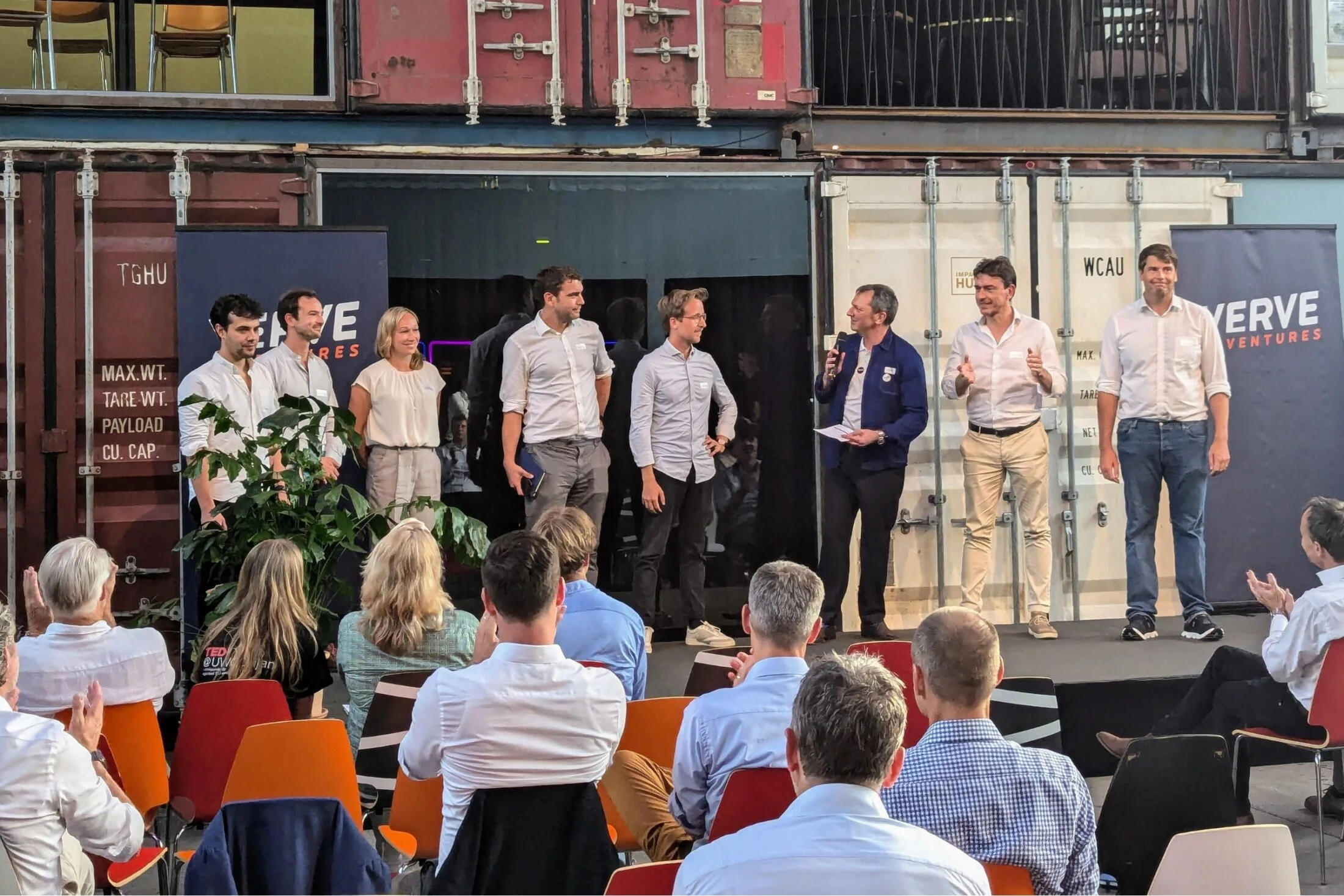
Our sophisticated investors include visionary family offices, leading wealth managers, institutions, founders, and senior executives. These individuals and organizations are all committed to shaping the next generation of innovation.
More News
Axelera is leading the democratization of AI
Axelera is developing a novel hardware and software platform for AI that processes data right where it is generated. In traditional hardware architectures the central processing units (CPUs) and memory chips are separate, but Axelera’s core technology combines the two. By putting the computing power in the memory chip itself, the time- and energy-intensive data movements between the cloud and the end device are eliminated, making the computations faster and 10 times more energy efficient than standard digital computing.
Why a new generation of chips are needed for AI
AI models rely on the quick processing of massive amounts of data that classical computing circuits were just not designed for. Professor Luca Benini of ETH Zurich tells us why it's urgent to tackle this challenge and how Dutch startup Axelera is aiming to solve it.
How to help
a weak heart
In this interview, the renowned cardiac surgeon Thierry Carrel explains what happens when the heart becomes weak, what the different treatment options are and why the new approach from the startup Fineheart sounds promising.
